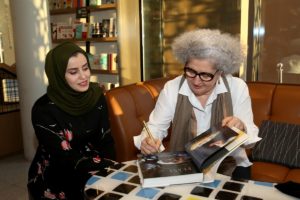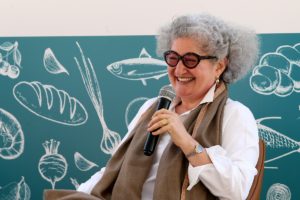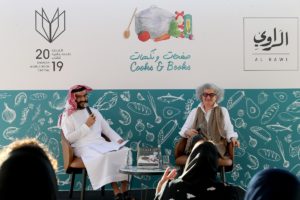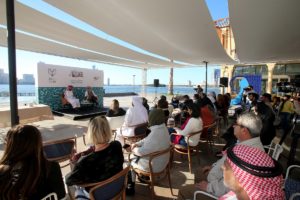Anissa Helou: From Accidental Cook To Levantine Cuisine Expert
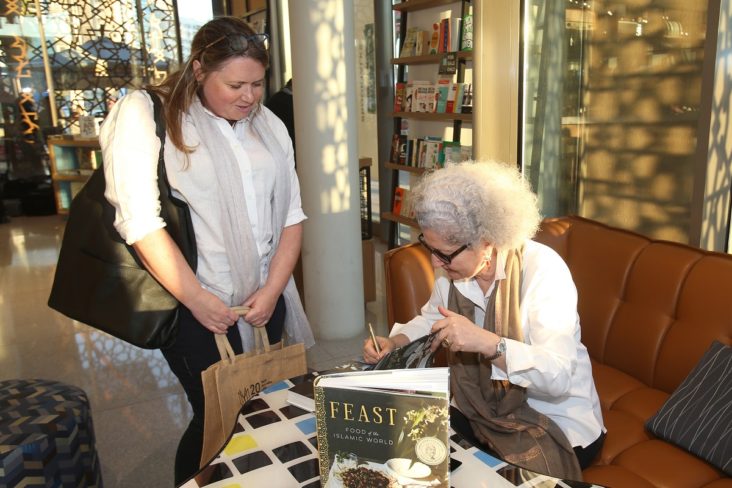
For someone who had never cooked while growing up and made her first dish only in her 20s, Anissa Helou’s contribution to the global culinary canon and her unparalleled authority on an extensive range of cuisines is nothing short of extraordinary.
In a delightful conversation with Emirati entrepreneur Mohamed Al Awadhi at the ‘Cooks & Books’ session held at Al Rawi Café, as part of the ongoing year-long Sharjah World Book Capital (SWBC) 2019 celebrations, the author of Feast: Food of the Islamic World, opened up about her journey of transition from the art world to writing cookbooks.
Growing up in Beirut with a Syrian father and Lebanese mother, Anissa’s childhood memories are all centred around food. “I especially remember climbing over the marble top to help my grandmother line up the parsley stalks for tabbouleh or pound the meat for kibbeh,” she says.
“Sunday lunches at my grandmother’s house and the special meals my mother made still evoke warm, happy memories,” says the author, recollecting how it was these memories she dipped into when she had to prepare a dinner party for 30 European guests in London.
“It was 1976 – when means of communication were still rudimentary in Lebanon compared to now and I couldn’t even call my mom easily!” she remembers. “Even essential ingredients were hard to find then.”
For years since, Anissa delved into the world of art, living and working across Europe and the Middle East.
In the early 1990s, it was a chance discussion at a dinner party in London on the paucity of Lebanese cookbooks that inspired her to feed into her impulse to unveil the art of Lebanese cuisine. “I wanted to preserve for posterity the recipes my mother cooked, and for those who were displaced by the war and didn’t have the good fortune of growing up watching their families cook, this book, I thought, would introduce them to the classical recipes of our bountiful country,” says Anissa.
Thus, was born Lebanese Cuisine in 1994. Eight more books followed, each firmly entrenching Anissa into the inner circles of the international culinary world. More recently, Feast (released in 2018), sought to “reveal the splendid traditions, history and cuisines that are integral to the Islamic culture.”
Describing her first experience of Emirati cuisine in the UAE a few years ago, Anissa says she was “blown away by how tasty and delicious it was.”
“It was a privilege to be invited into Emirati homes and to sample the exquisiteness of their traditional rice and meat dishes,” she said. “It was also in the UAE that I had my first taste of camel!”
In response to a question, she revealed that the biggest misconception of Middle Eastern cuisine is the idea of “Middle Eastern food” itself. “It should be Lebanese, Moroccan, Tunisian – and across religions as well,” she explains. “Without being too nationalistic, it is better to talk of cuisines of the country as against the region, like we talk of Italian, Spanish or French cuisine, and not European cuisine.”
The “Cooks & Books” session concluded with a book signing session, prior to which Anissa was pitted against a few guests in a friendly competition of who can collect the most beans with chopsticks into containers.
Attendees also had access to the freshest produce at The Ripe Market pop-up that was put up to complement the event.


